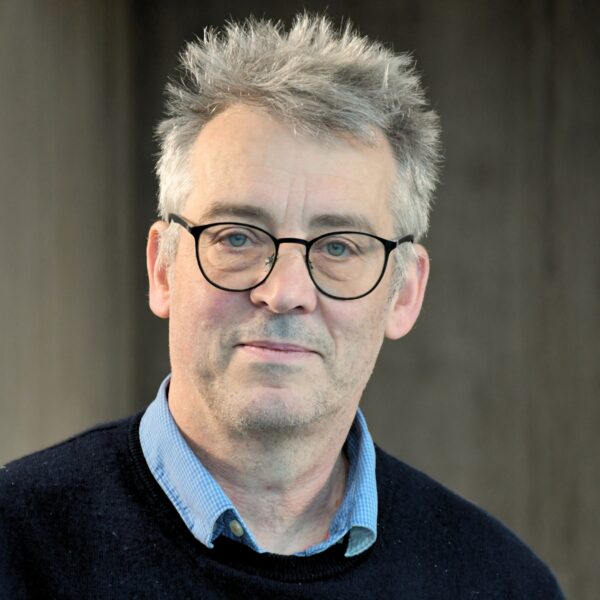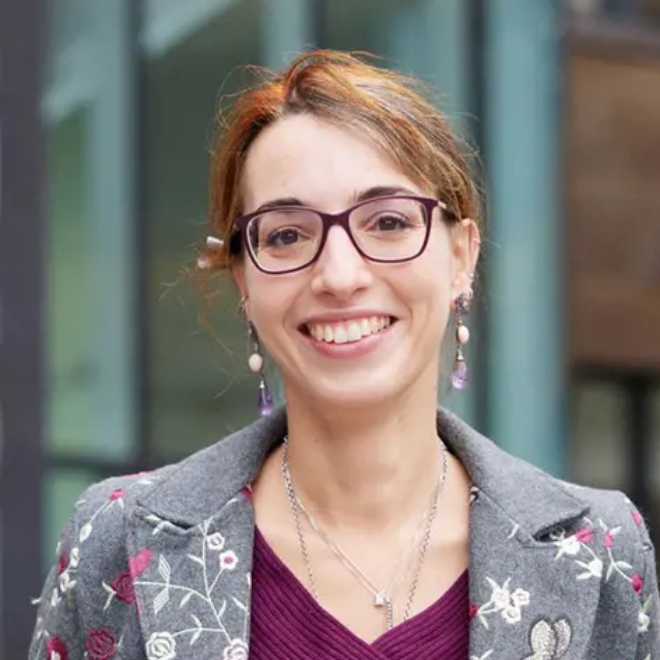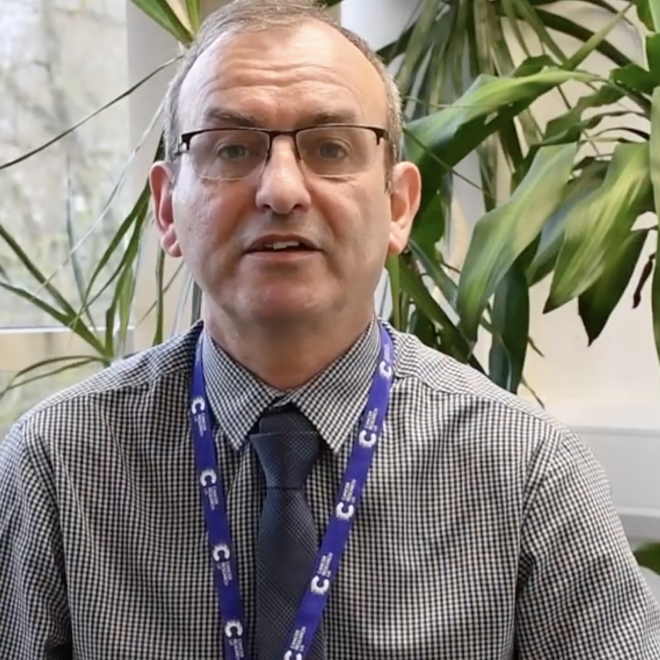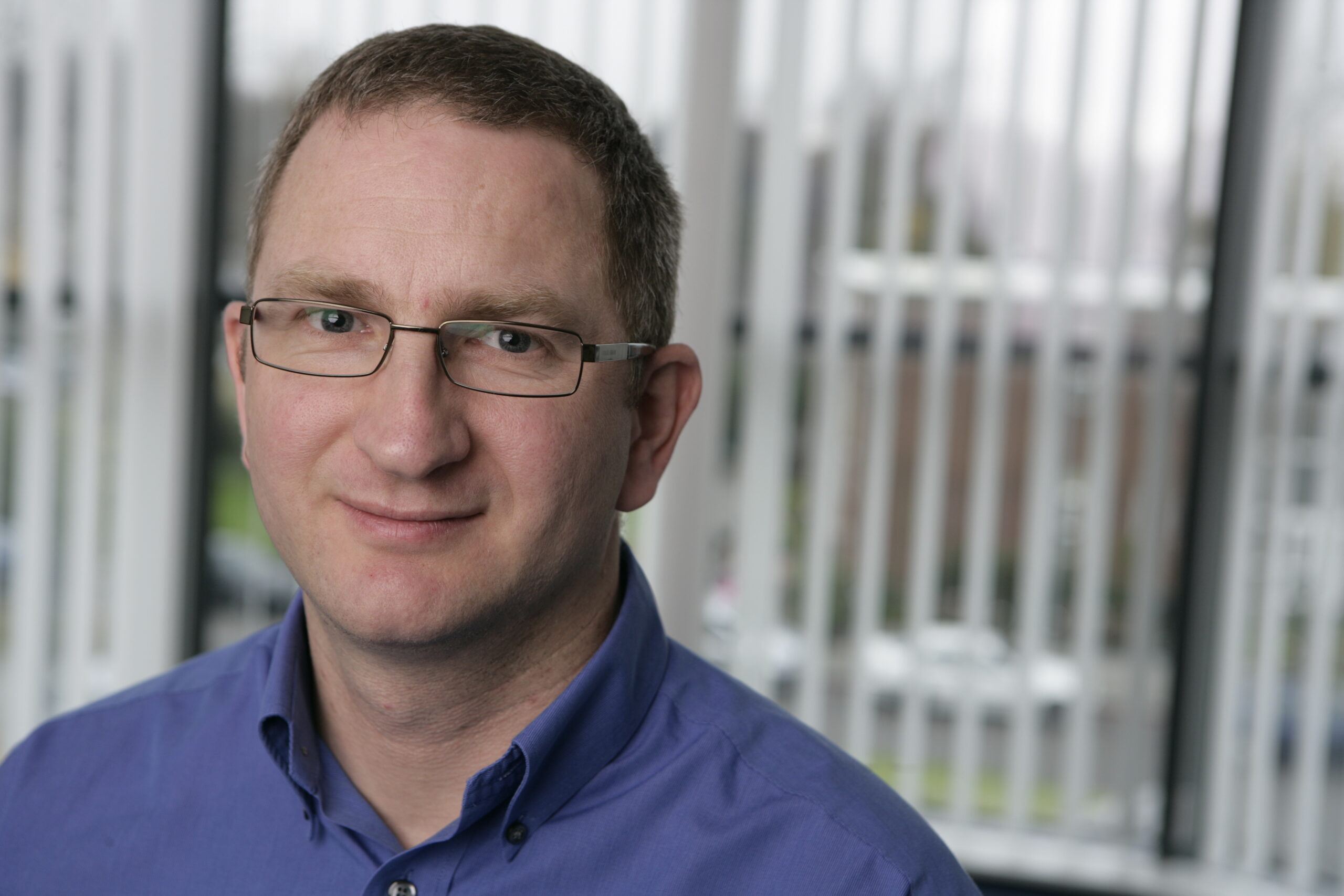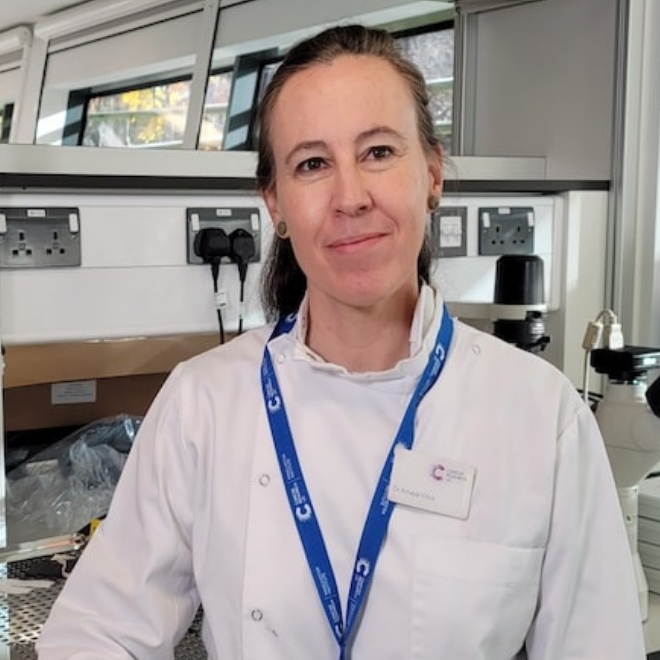Georges Lacaud
Stem Cell Biology Group Leader
Georges is a Senior Group Leader at the CRUK Manchester Institute where he leads the Stem Cell Biology group. His research focuses on the regulation of normal haematopoiesis to better understand the development of leukaemia and other blood cancers.
About Professor Georges Lacaud
Georges Lacaud graduated as a biotechnology engineer from the European Biotechnology School of Strasbourg (ESBS) in Strasbourg, France. He obtained his PhD from the University Louis Pasteur of Strasbourg, France and then undertook a postdoctoral fellowship at the National Jewish Medical Center in Denver, Colorado, USA studying early lymphoid cell development in Prof. Gordon Keller’s lab.
Georges next moved to the Mount Sinai School of Medicine in New York, NY, USA where he worked on early hematopoietic development.
In 2003, he joined the CRUK Manchester Institute as a junior group leader. He is now a senior group leader and heads the Stem Cell Biology group. Georges was awarded a Professorship in Stem Cell Biology at The University of Manchester in 2018.
Groups
Qualifications
- PhD in Molecular & Cellular Biology | 1994 | University of Strasbourg, France
- Engineer | 1988 | University of Strasbourg, France
Interests
- Blood cancer
- Developmental haematopoiesis
- Cellular (immuno)therapies
- Reprogramming
Research Projects
Publications
- Single-cell profiling reveals three endothelial-to-hematopoietic transitions with divergent isoform expression landscapes
- GFI1 proteins orchestrate the emergence of haematopoietic stem cells through recruitment of LSD1
- The Oncogenic Transcription Factor RUNX1/ETO Corrupts Cell Cycle Regulation to Drive Leukemic Transformation
- The small inhibitor WM-1119 effectively targets KAT6A-rearranged AML, but not KMT2A-rearranged AML, despite shared KAT6 genetic dependency
- Murine AGM single-cell profiling identifies a continuum of hemogenic endothelium differentiation marked by ACE
Why I work at CRUK MI
“I am delighted to work at here at the Institute because of its collaborative environment, scientific freedom, and access to cutting-edge resources. Interacting daily with a team of brilliant and dedicated scientists is truly inspiring.”
Visit Research Group
Our team is focused on uncovering the mechanisms underlying leukaemia development and maintenance, with the goal of identifying and validating new therapeutic targets. Additionally, we aim to understand the processes governing normal haematopoietic development, enabling us to replicate this in vitro for the generation of therapeutic immune cells.
To achieve these objectives, we are employing advanced technologies, including single-cell multi-omics, spatial transcriptomics, CRISPR screening, mass spectrometry, bioinformatics, medicinal chemistry, mouse models, organoid cultures, and patient-derived samples.
Get in touch
https://doi.org/10.1038/s44161-025-00740-z
Single-cell profiling reveals three endothelial-to-hematopoietic transitions with divergent isoform expression landscapes
11 November 2025
Institute Authors (6)
Robert Sellers, John Weightman, Wolfgang Breitwieser, Natalia Moncaut, Michael Lie-a-ling, Georges Lacaud
Labs & Facilities
Computational Biology Support, Molecular Biology, Genome Editing and Mouse Models
Research Group
Stem Cell Biology
11 November 2025
https://doi.org/10.1136/jitc-2025-012527
Systemic immunosuppression from ultraviolet radiation exposure inhibits cancer immunotherapy
31 October 2025
Institute Authors (4)
Isabella Mataloni, Antonia Banyard, Garry Ashton, Amaya Virós
Labs & Facilities
Mass and Flow Cytometry, Histology
Research Group
Skin Cancer & Ageing
31 October 2025
https://aacrjournals.org/cancerdiscovery/article/doi/10.1158/2159-8290.CD-24-1224/766638/Glucocorticoids-Unleash-Immune-dependent-Melanoma
Glucocorticoids Unleash Immune-dependent Melanoma Control through Inhibition of the GARP/TGF β Axis
15 October 2025
Institute Authors (12)
Charles Earnshaw, Poppy Dunn, Shih-Chieh Chiang, Maria Koufaki, Massimo Russo, Kimberley Hockenhull, Erin Richardson, Anna Pidoux, Alex Baker, Richard Reeves, Robert Sellers, Sudhakar Sahoo
Labs & Facilities
Computational Biology Support, Visualisation, Irradiation and Analysis
Research Group
Cancer Inflammation and Immunity
15 October 2025
/wp-content/uploads/2025/09/Annual_Report_2024.pdf
2024 Annual Report
23 September 2025
23 September 2025
https://doi.org/10.1182/blood.2024028033
An in vivo barcoded CRISPR-Cas9 screen identifies Ncoa4-mediated ferritinophagy as a dependence in Tet2-deficient hematopoiesis
4 September 2025
Institute Authors (1)
Justin Loke
Research Group
Myeloid Cancer Biology
4 September 2025
https://doi.org/10.1038/s41467-024-49692-1
Whole genome sequencing refines stratification and therapy of patients with clear cell renal cell carcinoma
15 July 2025
Institute Authors (1)
Samra Turajlić
Research Group
Cancer Dynamics
15 July 2025
Our vision for world leading cancer research in the heart of Manchester
We are a leading cancer research institute within The University of Manchester, spanning the whole spectrum of cancer research – from investigating the molecular and cellular basis of cancer, to translational research and the development of therapeutics.
Our collaborations
Bringing together internationally renowned scientists and clinicians
Scientific Advisory Board
Supported by an international Scientific Advisory Board
Careers that have a lasting impact on cancer research and patient care
We are always on the lookout for talented and motivated people to join us. Whether your background is in biological or chemical sciences, mathematics or finance, computer science or logistics, use the links below to see roles across the Institute in our core facilities, operations teams, research groups, and studentships within our exceptional graduate programme.





